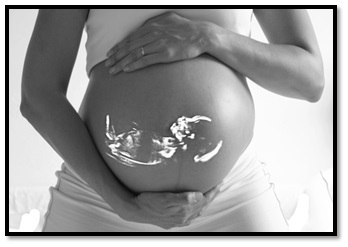According to a study conduction by the Centers for Disease Control and Prevention, about 12% of women between the ages of 15-44 experience difficulty in getting pregnant or carrying a pregnancy to term.
between the ages of 15-44 experience difficulty in getting pregnant or carrying a pregnancy to term.
However, this issue isn’t just something that women alone are going through.
According to the same study, 7.5% of all sexually experienced men less than 45 also experience trouble with their fertility.
With so many people with fertile problems, it is no surprise that many couples seek to increase their chances through medical procedures such as IVF or in-vitro fertilization.
However, this procedure is not something that can be used by just anyone. There are several factors that impact a person’s chance of treating their fertility and genetic problems.
Top Factors that Affect Conception
1. Age
Age is important if you want to increase your chances of getting pregnant. Younger women have a higher chance of getting pregnant than older. Those of a higher age will have fewer eggs which may be of a lower quality.
And while the chances of a IVF success for women under 35 is around 40%, for women over the age of 42, these chances drop down to only a 4% success rate since many women experience the early symptoms of menopause during this time.
2. Types of Fertility Problems
Fertility problems can affect IVF success. Male infertility problems such as uterine abnormalities and fibroid tumors can reduce the likelihood of the sperm’s success of integrating in the IVF procedure.
Whereas for women, problems such as ovarian dysfunction, high FSH (follicle-stimulating hormone) levels and even hypertension can lead to a low ovarian reserve, which can reduce the chance of getting pregnant. Another issue that can reduce chances of IVF success is the treatment of ovarian problems through high amounts of ovulation stimulation drugs.
3. Lifestyle Choices
Smoking can negatively impact your chances of IVF success, according to one study in the Oxford Journals. Research concluded that non-smoking women had an 85% chance of getting pregnant through IVF, whereas non-smoking men have a higher sperm count, lesser hormonal issues, and less chances of getting erectile dysfunction.
Along with smoking, obesity also can affect your chances, since the extra weight can cause strain on your organs. Basically, it is advised that you maintain a healthy regime.
4. Previous Pregnancies
Your chances of getting pregnant through IVF can increase if you’ve already had a previous pregnancy. Patients who are undergoing IVF treatment can have a greater chance of success if they’ve already had a child with the same partner before. However, miscarriages or a different partner may reduce chances of a successful IVF rate.
5. Choice of Fertility Clinic
Centers that cater to couples for fertility treatment can affect your chances of getting pregnant through IVF. IVF clinics in Mexico receive a steady stream of patients seeking treatment mainly because they know that they will get the right advice through a good doctor. Also, through proper treatment at IVF clinics, patients can use the opportunity to try for multiple children as well.
If you feel like you have a chance of succeeding through IVF treatment, get in touch with us. For clients who come to International Patients Facilitators, we offer the very best doctors and trained staff specifically to treat their infertility issues at prices far less than that in the U.S. or Canada. And through their qualification and treatment, many couples and individuals receive positive results.

